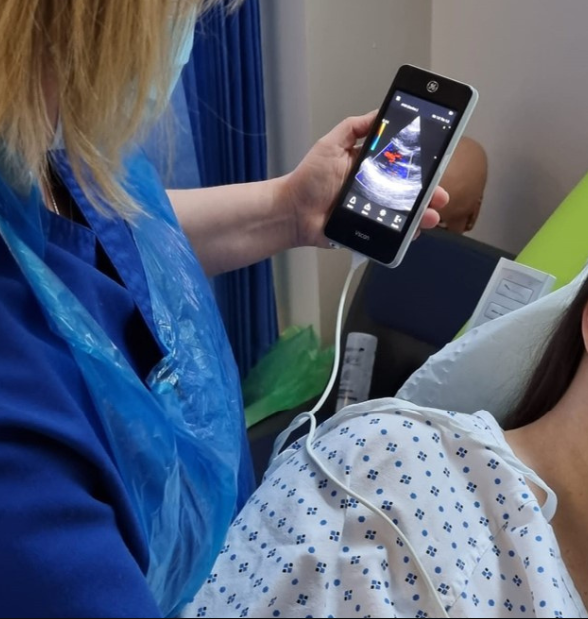A Swansea University-led initiative aims to improve heart failure care across Wales by uniting researchers, healthcare professionals, patients, and policymakers. The project evaluates practices, gathers insights, and identifies research gaps.

This pioneering initiative aims to enhance heart failure care across Wales. Led by Dr Emma Rees and Dr Aimee Drane at Swansea University, and supported by a one-year NIHR grant, the project brings together healthcare professionals, researchers, patients, and policymakers. Through stakeholder engagement, data integration, and expert collaboration, the project will generate a national consensus on best practices and define research priorities to transform patient care.
Project aims
The project was initiated to address inconsistencies in heart failure care across Wales. By assessing current care practices, identifying successful interventions, and uncovering research opportunities, the goal is to build a strong, evidence-based foundation for future innovations. It also aims to boost interdisciplinary research capacity and foster collaboration across Welsh health boards, ensuring better-informed and more effective heart failure treatment for patients.
Project kick-off
The project began with support from a one-year NIHR grant. Initial efforts focused on bringing together key stakeholders, including all health boards in Wales, to share insights during a sandpit event. This event was central to building relationships, understanding current practices, and identifying care gaps. Input was also gathered from leading heart failure services in England to introduce best practices. Following this, collaboration with the Swansea Trials Unit began, preparing for a systematic review and meta-analysis to underpin the project's evidence-based approach.
Project challenges
A major challenge was the limited detail in existing health data, which hindered the ability to analyse the type and severity of heart failure. To address this, the team partnered with Swansea Bay University Health Board and the SAIL Databank within the National Network for Innovation in Sport and Health to test the feasibility of extracting heart scan measurements and linking them to broader health data. This required technical collaboration and coordination between clinicians and data scientists. The process highlighted the need for improved data collection standards and taught the team valuable lessons about integrating complex health data for research.
Project outcomes
The project successfully brought together diverse stakeholders to evaluate and enhance heart failure care across Wales. Through the sandpit event, Welsh health boards shared strategies, challenges, and innovations, fostering a collective understanding of the current landscape. The partnership with the Swansea Trials Unit, also within the National Network for Innovation in Sport and Health, led to a systematic review and meta-analysis, establishing a strong evidence base for heart failure interventions.
Significantly, the team made progress in linking heart scan data with the SAIL Databank, paving the way for more precise population-level research. If fully developed, this model could transform how heart failure is monitored and studied, improving accuracy in research and ultimately, patient care.
At the conclusion of the programme, the team will publish a consensus document outlining best practices and future research priorities. This resource will guide further collaborative research and support funding applications for large-scale projects. Overall, the initiative has strengthened research capacity, improved data capabilities, and laid the groundwork for more integrated, effective heart failure care in Wales.
Project funding
The project was funded by a one-year grant from the National Institute for Health and Care Research (NIHR).
Project team and partners
The project was led by Dr Emma Rees and Dr Aimee Drane from Swansea University. Key partners included:
- Swansea Trials Unit – systematic review and meta-analysis
- Dr Benjamin Dicken, Cardiologist, Swansea Bay University Health Board – clinical data integration
- Dr Libby Ellins, Data Science Lead, National Cardiovascular Research Network – data linkage
- All Welsh health boards – stakeholder engagement
- Leading services from England – sharing best practices
Next steps
The final step will be publishing a national consensus document outlining best practices and priority areas for heart failure research in Wales. This will form the foundation for future funding bids and collaborative studies. The team also plans to refine the model for data extraction and linkage, with the aim of expanding it to other health boards across Wales. Future phases may involve piloting new interventions based on identified gaps and applying for larger-scale funding to implement research-driven changes in clinical practice.
